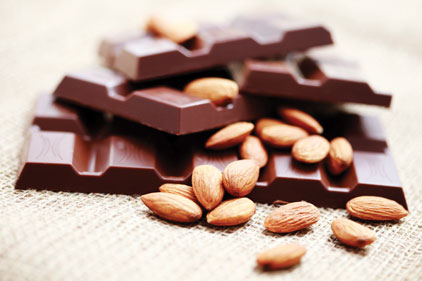However, a recent study suggests that chocolate cravings are not a modern phenomenon. In fact, chocoholism may date back to the 18th Century and beyond.
Cacao beans, which are the basic component of chocolate, were roasted, ground and drunk with water by the Mayans from around 2,000 years ago.
In the 14th Century, the Aztecs concocted chocolate drinks with flavorings and used the beans to treat a number of common ailments.
Then in the late 1700s in Mexico, a young doctor started seeing chocolate as harmful, rather than medicinal. He blamed an increase in hysteria among women and nuns in several cities on their excessive consumption of chocolate.
According to a paper presented at the International Congress on the History of Science, Technology and Medicine at the University of Manchester, cacao was very popular at the time and could be served hot or cold for medicinal or pleasure purposes.
Nuns were particularly privileged, says author Dr Mauricio Sanchez Menchero, and they "were able to have as much chocolate as they wished for regardless of costs".
Even a sharp rise in the price of chocolate did not affect consumption levels in convents, he says.
So when new laws were brought in which forced nuns to do away with personal servants and make their own food and drinks, their intake of cacao was "greatly diminished" and they were afflicted by hysterical attacks.
Dr Jose Bartolache was convinced that the cacao plant played a major role in ill health, although very tight clothes and going to bed late were other supposed causes.
The bitter, dark chocolate eaten by the nuns is nothing like the sugary, flavored milk chocolate which is popular today, but the reaction is understandable.
Many people would claim to crave chocolate and enjoy the feeling that eating it induces.
The key to this may be a chemical called anandamide, which is similar to the compounds released when cannabis is taken. It is released in small quantities when someone eats chocolate, and it creates a relaxing feeling.
Prof Philip K. Wilson, joint author of Chocolate as Medicine - A Quest over the Centuries with Jeffrey Hurst, says what lies behind the aphrodisiac qualities of chocolate is still to be answered.
"It's difficult to tease apart which chemicals may be contributing to which psychological functions. There are over 500 chemicals in consumer chocolate products, so there's a lifetime of chemical analysis still to be done," says Prof Wilson.
His hunch is that the "almost seductive" texture of chocolate is as important as its ingredients.
Dr Barry Smith, director of the Centre for the Study of the Senses at Birkbeck University of London, agrees. He says the combination of the smoothness and creaminess of chocolate in the mouth, the sweetness of the taste - boosted by vanilla flavouring - and the smell of it before it even hits the taste buds make chocolate-eating a hugely pleasurable experience.
"Cheese might smell stinky but it can taste great. Brewed coffee always smells fantastic but it's not the same taste when you drink it - and that's disappointing. But with chocolate, the pleasure of anticipation and the reward in eating it match up. The aroma and the taste are the same. And that matters because there are two sorts of pleasure involved," says Dr Smith.
He recommends taking time to savor a piece of chocolate, then comparing that experience with eating it quickly. "When you start eating it, turn it around in your mouth to get the melting quality which strokes the tongue. Receptors in the tongue then respond to this stroking and it's a different feeling from touch. That's why we love a velvety wine or double cream - it's the feeling on our tongues."
Both men and women can experience the pleasure of chocolate, but women's superior sense of smell means that they may be more likely to enjoy the ride.
There is a theory that because chocolate is perceived as "bad food" -- because of its sugar and fat content -- we try to avoid eating it, and this leads us to crave it, because it is forbidden.
However, in recent years, chocolate's press has improved to the extent that it is now known to have some health benefits.
The type of polyphenols present in cacao beans, known as flavanoids, are antioxidants, and there is some evidence that this action may help protect the heart, though only as part of a healthy and balanced diet.
As for whether chocolate can actually improve mood, there is limited evidence according to neuroscientists.
